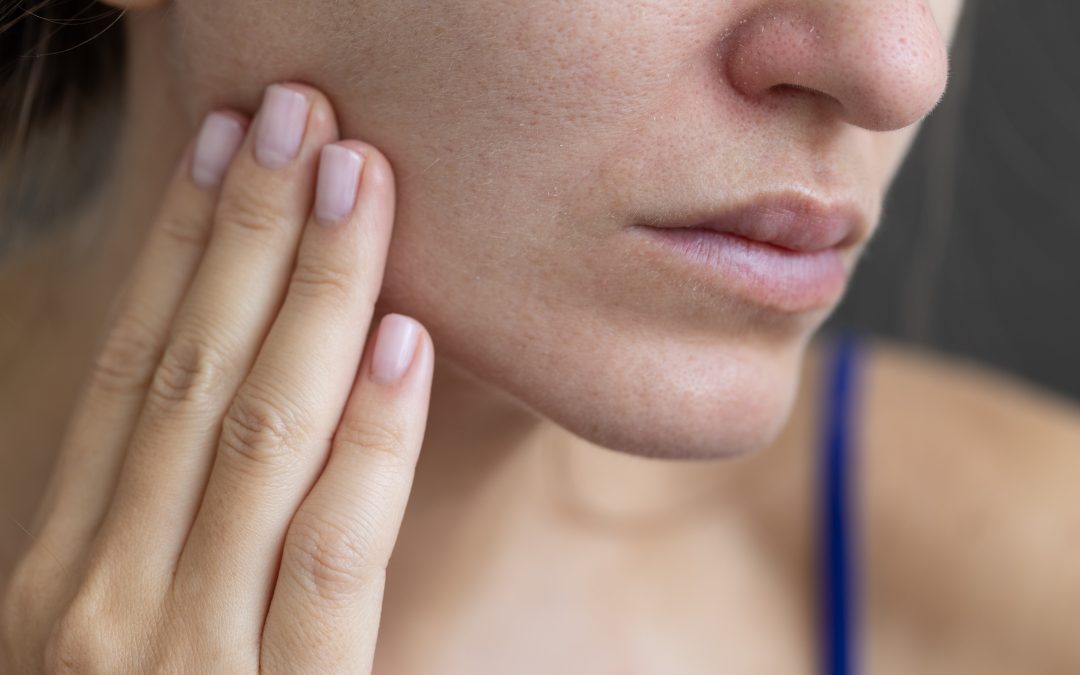Why Does My Skin Get Dry When It’s Cold?
Whether you’re a long time resident of Sevierville or a visitor exploring Gatlinburg or Pigeon Forge, experiencing dry skin during the peak of winter can be incredibly inconvenient. It can be distracting when you’re strolling through downtown Gatlinburg or commuting between work and home in Sevier County when your skin feels itchy, tight, and uncomfortable. East Tennessee is no stranger to humidity in the warmer months, so cold, dry winters feel especially harsh if you’re prone to dry skin. Practice some of these tips so you can enjoy the winter season in the Smokies without the painful distraction of dry skin.
As winter approaches, many people find themselves battling the unwelcome symptoms of dry, irritated skin. Itchy elbows, cracked hands, and flaky knees become a common occurrence. If you get dry skin every year, it’s crucial to understand what causes this winter-induced dryness and learn effective, preventative tips.
Visit or call AFC Urgent Care Sevierville when you have questions or concerns about your dry skin. We’re open 7 days a week with no appointment necessary.
Why does my skin get dry when it’s cold?
Dry skin primarily stems from the air losing its moisture. As temperatures drop, the air can’t hold as much moisture, making both indoor and outdoor environments drier. This drop in humidity speeds up moisture evaporation from the skin, leaving it tight, flaky, and uncomfortable. Especially in the South, where we’re used to high humidity in spring and summer, the sudden switch to dry conditions often messes with our skin.
On top of the dry air, cold temperatures also play a part by tightening blood vessels. This constriction means less natural oils and nutrients flowing to the skin. Using harsh soaps and detergents regularly, especially in the chilly months, makes matters worse by stripping away the skin’s natural oils, making it more prone to dryness.
Common Area Prone to Dryness During Winter
Dry skin can vary for each person, but some areas are prone to drying out, especially during winter.
- Elbows. The skin on your elbows is naturally thicker and more prone to dryness. Because this area lacks oil glands, it’s more susceptible to losing moisture.
- Hands. Constant exposure to cold air, harsh soaps, and frequent handwashing can strip the skin of its natural oils, leading to dryness and cracking. This is especially common in cold weather when the skin is already more prone to dryness.
- Knees. Just like the skin on the elbows, the skin on the knees is thicker and tends to be drier. Regular moisturization is key to preventing dryness and roughness.
- Face (especially around the mouth). The sensitive skin on the face is more reactive to environmental changes. The area around the mouth is particularly susceptible to dryness due to constant exposure to cold air and wind.
- Feet. Wearing closed shoes and boots during the winter months can trap sweat within the footwear, causing dryness and potential cracking once the moisture evaporates.
How do you prevent dry skin during winter?
Try a humidifier
Humidifiers are an excellent choice for keeping your skin hydrated and preventing dryness and irritation during the winter. They can also help alleviate asthma and other respiratory issues that are common in cold weather.
When choosing a humidifier, it is important to select the right size for your home. An oversized humidifier can make your home too damp, which can lead to mold and mildew growth. On the other hand, an undersized humidifier will not provide enough moisture to keep your skin hydrated. Always check the square footage recommendations on the packaging when selecting a humidifier to ensure that it meets your needs.
Take lukewarm showers instead of hot showers
As winter approaches, many people turn to hot showers for a warm escape from the chilly weather. While these hot showers may provide temporary relief, they can actually dry out your skin, making the already dry winter air even worse.
Hot water can wreak havoc on your skin in two ways. First, it dilates your blood vessels, which can lead to redness, irritation, and dryness. Second, it strips away your skin’s natural oils, which are like a protective shield that blocks out other irritants and keeps moisture locked in the skin. Hot water can also damage the keratin cells in your skin, which are responsible for keeping your skin hydrated and protected from the elements. When these cells are damaged, they can’t do their job, and your skin gets dry and flaky.
Moisturize Daily
Moisturizing regularly is like giving your skin a big drink of water. It helps to replenish the lost oils and keep your skin hydrated and feeling soft. For the best results, choose a fragrance-free and non-comedogenic moisturizer, so it doesn’t clog your pores or irritate your skin. Ointments and creams are generally more moisturizing than lotions, so they’re a good choice for people with very dry skin. Look for products that contain ceramides, hyaluronic acid, and shea butter, as these ingredients are particularly beneficial for dry skin.
The best time to moisturize is after a shower or bath when your skin is still slightly damp. This is when your skin is most receptive to hydration. Apply a generous amount of moisturizer to all areas of your body, paying special attention to your hands, feet, elbows, and knees, as these areas are more prone to dryness as previously mentioned.
Protect your skin when you go outside
When you head outside in the winter, make sure to bundle up. Wear gloves to protect your hands from the cold and wind, and a scarf to keep your neck and face warm. If you can, wear a hat to protect your scalp and ears. Don’t forget to apply sunscreen with at least SPF 30 to all exposed skin when you’re outside for long periods of time, even on cloudy days. While the sun may not seem as strong in the winter, its harmful UV rays can still damage your skin.
Nourish your body
A healthy diet is essential for keeping your skin healthy and hydrated. Make sure to include plenty of fruits, vegetables, and whole grains in your diet. These foods are packed with vitamins, minerals, and antioxidants that your skin needs to stay radiant and protected. And don’t forget to drink plenty of water! Aim for at least eight glasses per day to stay hydrated.
Fruits, especially those with high water content like watermelon and oranges, help prevent dryness. Vegetables are a great source of vitamins A, C, and E, all of which play a vital role in maintaining skin health and preventing dryness. Omega-3 fatty acids, often found in fatty fish like salmon, tuna, and sardines, are other great sources for maintaining skin elasticity and preventing inflammation.
Remember, consistency is key when it comes to keeping your skin healthy during the winter. Moisturize regularly, protect your skin from the cold and sun, and eat a healthy diet. By following these simple tips, you can keep your skin hydrated so you can be comfortable all season long.



